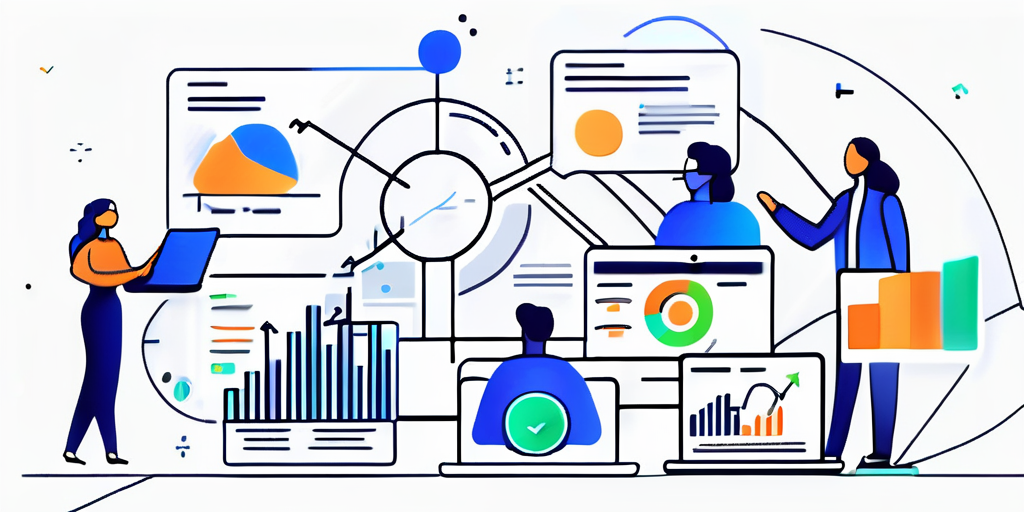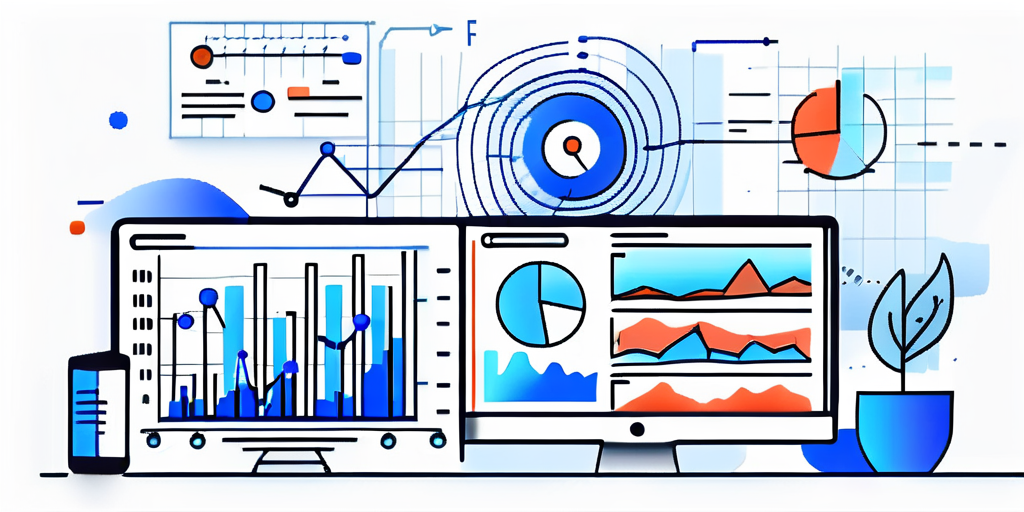Understanding ABM Demand Generation
The Basics of ABM Demand Generation
Account-Based Marketing (ABM) Demand Generation is a targeted approach that focuses on key accounts instead of a wide audience. In simple terms, it means concentrating marketing efforts on specific businesses or individuals that are most likely to convert into customers. Think of it like throwing a dart at a bullseye, rather than scattering paint across a canvas.
By honing in on these important accounts, companies can customize their messaging and make it super relevant to the needs and pain points of their desired audience. This kind of focused strategy can lead to much higher engagement rates and, ultimately, conversions. Additionally, ABM allows for a more efficient allocation of resources, as marketing teams can prioritize their efforts on accounts that show the most promise, rather than spreading themselves thin across a broad spectrum of potential leads. This strategic focus not only increases the chances of closing deals but also fosters deeper relationships with key stakeholders within those accounts, paving the way for long-term partnerships.
The Role of AI in ABM Demand Generation
Artificial intelligence plays a crucial role in enhancing ABM Demand Generation. AI can analyze large volumes of data quickly and accurately. This helps marketers understand their target audience better. For instance, AI tools can predict which accounts are more likely to engage, based on past behavior and trends.
AI can also automate repetitive tasks. This allows teams to focus on more strategic initiatives and not get bogged down with busywork. Imagine having a smart assistant that sorts through mountains of data and highlights the insights that matter most. That’s the power of AI in ABM! Additionally, AI can facilitate personalized content creation, tailoring messages to resonate with individual decision-makers within an organization. By leveraging machine learning algorithms, marketers can craft bespoke campaigns that speak directly to the unique challenges and goals of each account, thereby increasing the likelihood of capturing their attention and driving meaningful interactions. This level of personalization not only enhances the customer experience but also positions brands as trusted partners in solving their clients’ specific problems.
The Power of Personalization in ABM

The Importance of Personalization
Personalization is all about making a genuine connection with potential customers. When a marketing message speaks directly to individual needs, it resonates far more than a generic message. With personalization, prospects feel valued and understood.
According to studies, personalized marketing can significantly increase engagement and conversion rates. This shows that when businesses tailor their offerings and communications to address specific needs, it creates a win-win situation for both the company and the customer.
And when we say personalization, we’re going way beyond simply addressing the customer by their name in an email. It involves understanding the customer’s journey and providing relevant content at each stage. For instance, a customer who has shown interest in a particular product category may appreciate receiving tailored recommendations or exclusive offers that align with their preferences. This level of attention not only enhances the customer experience but also fosters loyalty, encouraging repeat business and long-term relationships.
How AI Enhances Personalization
AI takes personalization to the next level. It analyzes user data to create detailed profiles of potential customers. This includes their interests, behaviors, and preferences. With all these insights, businesses can develop highly personalized marketing campaigns.
Additionally, AI can adjust its strategies in real-time. For example, if a user engages with certain content, AI can recommend similar content instantly. This approach keeps potential customers engaged and interested.
AI can also segment audiences based on their interactions and feedback, allowing for even more targeted marketing efforts. By using machine learning algorithms, businesses can predict future behaviors and preferences, enabling them to proactively address customer needs before they even arise. This predictive capability not only enhances the effectiveness of marketing strategies but also helps in optimizing resource allocation, ensuring that marketing budgets are spent where they will have the most impact. As a result, businesses can achieve a more efficient and effective approach to reaching their target audiences, ultimately driving higher returns on investment.
Key Strategies for AI-Powered Personalization
Implementing AI Tools for Personalization
To kickstart personalized marketing efforts, businesses should leverage various AI tools. These tools can collect and analyze data, automate communications, and even provide insights into customer behavior. Popular options include machine learning algorithms and natural language processing.

Start small by integrating an AI analytics tool that provides insights into customer interactions. Once comfortable, scale up and adopt tools that help personalize email marketing, social media outreach, and website experiences.
Optimizing AI Algorithms for Better Personalization
Just having AI tools isn’t enough. To truly benefit from AI-powered personalization, businesses must continually optimize their algorithms. This means frequently updating data inputs and testing different strategies.
For example, experimenting with different messaging styles can reveal what resonates most with your audience. Tracking customer interactions after each change will offer insights into which variations yield better results. This learning process is vital for ongoing improvement!
Measuring the Success of AI-Powered Personalization
Key Performance Indicators for AI-Powered Personalization
Measuring success is essential for any marketing strategy. Businesses should define clear Key Performance Indicators (KPIs) to evaluate their AI-powered personalization efforts. Common KPIs to track include engagement rates, conversion rates, and customer satisfaction scores.

By analyzing these metrics, companies can determine what works and what doesn’t. This invaluable feedback allows for fine-tuning strategies to achieve even greater success.
Evaluating the Impact of AI on ABM Demand Generation
Understanding the overall impact of AI on ABM Demand Generation is crucial for long-term success. Businesses can conduct surveys and gather qualitative feedback to gauge customer sentiment. This can provide insights into how personalized content is affecting their perception of the brand.
Additionally, comparing pre- and post-AI adoption performance metrics will give a clear picture of progress. Businesses that actively seek to understand these impacts will be better prepared to refine their strategies for the future.
Future Trends in AI-Powered Personalization for ABM
Predicted Developments in AI and ABM
The landscape of AI and ABM is continually evolving. Emerging trends include the integration of advanced predictive analytics and machine learning into ABM strategies. Companies may start to see even more personalized customer experiences as AI grows smarter.

Voice-activated assistants and conversational AI could play larger roles too, allowing for seamless interactions. These trends promise to change how businesses converse with their customers fundamentally.
Preparing for the Future of AI-Powered ABM Personalization
To stay ahead of the curve, businesses must be proactive in embracing new technologies. Investing in training and development for teams can ensure they’re using the latest AI tools effectively.
Companies should also keep an eye on evolving customer preferences. Staying informed about trends and changes in consumer behavior will help businesses adapt their strategies accordingly. This readiness can make a significant difference in maintaining a competitive edge.
We’re living in an exciting time, AI-powered personalization in ABM Demand Generation opens seemingly endless opportunities. By understanding its fundamentals, harnessing the power of personalization, and anticipating future trends, businesses can position themselves for remarkable growth!
Need help building out your AI-Powered Account-Based Marketing strategy? Get in touch.






